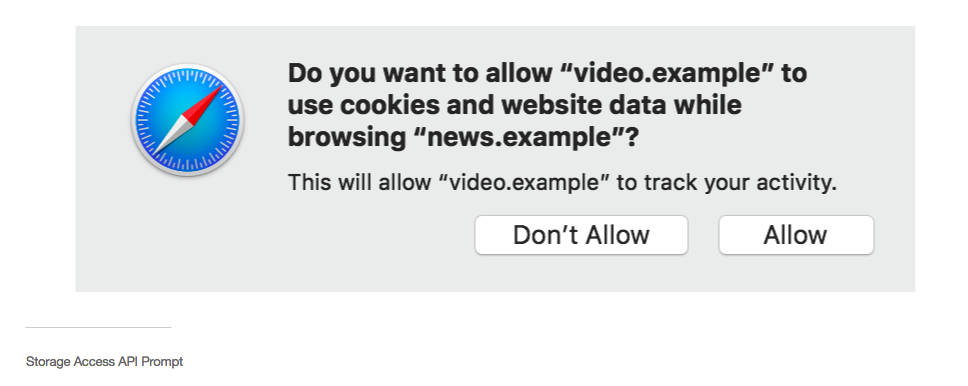|
https://ift.tt/2svO1iY
The erosion of Web 2.0 https://ift.tt/2JwzPzU It seems quaint to imagine now but the original vision for the web was not an information superhighway. Instead, it was a newspaper that fed us only the news we wanted. This was the central thesis brought forward in the late 1990s and prophesied by thinkers like Bill Gates – who expected a beautiful, customized “road ahead” – and Clifford Stoll who saw only snake oil. At the time, it was the most compelling use of the Internet those thinkers thought possible. This concept – that we were to be coddled by a hive brain designed to show us exactly what we needed to know when we needed to know it – continued apace until it was supplanted by the concept of User Generated Content – UGC – a related movement that tore down gatekeepers and all but destroyed propriety in the online world. That was the arc of Web 2.0: the move from one-to-one conversations in Usenet or IRC and into the global newspaper. Further, this created a million one-to-many conversations targeted at tailor-made audiences of fans, supporters, and, more often, trolls. This change gave us what we have today: a broken prism that refracts humanity into none of the colors except black or white. UGC, that once-great idea that anyone could be as popular as a rock star, fell away to an unmonetizable free-for-all that forced brands and advertisers to rethink how they reached audiences. After all, on a UGC site it’s not a lot of fun for Procter & Gamble to have Downy Fabric Softener advertised next to someone’s racist rant against Muslims in a Starbucks. Still the Valley took these concepts and built monetized cesspools of self-expression. Facebook, Instagram, YouTube, and Twitter are the biggest beneficiaries of outrage culture and the eyeballs brought in by its continuous refreshment feed their further growth. These sites are Web 2.0 at its darkest epitome, a quiver of arrows that strikes at our deepest, most cherished institutions and bleeds us of kindness and forethought. So when advertisers faced either the direct monetization of random hate speech or the erosion of customer privacy, they choose the latter. Facebook created lookalike audiences that let advertisers sell to a certain subset of humanity on a deeply granular level, a move that delivered us the same shoe advertisement constantly, from site to site, until we were all sure we had gone mad. In the guise of saving our sanity further we invited always-on microphones into our homes that could watch our listening and browsing habits and sell to us against them. We gave up our very DNA to companies like Ancestry and 23andMe, a decision that mankind may soon regret. We shared everything with everyone in the grand hope that our evolution into homo ligarus – the networked man – would lead us to become homo deus. This didn’t happen.
And so the pendulum swings back. The GDPR, as toothless as it is, is a wake up call to every spammer that ever slammed your email or followed you around the web. Further, Apple’s upcoming cookie control software in Safari should make those omnipresent ads disappear, forcing the advertiser to sell to an undifferentiated mob rather than a single person. This is obviously cold comfort in an era defined by both the reification of the Internet as a font for all knowledge (correct or incorrect) and the genesis of an web-based political cobra that whips back to bite its handlers with regularity. But it’s a start. We are currently in an interstitial period of technology, a cake baked of the hearty camaraderie and “Fuck the system” punk rock Gen X but frosted with millennial pragmatism and desire for the artisanal. As we move out of the era of UGC and Web 2.0 we will see the old ways cast aside, the old models broken, and the old invasions of privacy inverted. While I won’t go as far to say that blockchain will save us all, pervasive encryption and full data control will pave the way toward true control of our personal lives as well as the beginnings of a research-based minimum income. We should be able to sell our opinions, our thoughts, and even our DNA to the highest bidder and once the rapacious Web 2.0 vultures are all shooed away, we will find ourselves in an interesting new world. As a technoutopianist I’m sure that were are heading in the right direction. We are, however, taking turns that none of us could have imagined in the era of Clinton and the fax machine and there are still more turns to come. Luckily, however, we are coming out of our last major skid.
Photo by George Fitzmaurice on Unsplash Social Media via Twitter – TechCrunch https://techcrunch.com June 5, 2018 at 10:01AM
0 Comments
Leave a Reply. |
�
Amazing WeightLossCategories
All
Archives
November 2020
|



 RSS Feed
RSS Feed
